Stand Up Comics is a regular column by Adan Jimenez. These titles need no introduction: just read the column, then read some good comics!
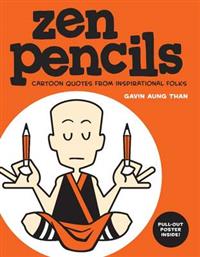 Zen Pencils: Cartoon Quotes from Inspirational Folks by Gavin Aung Than (Andrews McMeel, $14.99, 9781449457952)
Zen Pencils: Cartoon Quotes from Inspirational Folks by Gavin Aung Than (Andrews McMeel, $14.99, 9781449457952)
Gavin Aung Than used to be a corporate graphic designer, but it was a job he did not find very fulfilling. Whenever he could get a free moment, he would go online and read Wikipedia biographies of people he felt had more interesting lives. Those bios, and the things these people said, ultimately inspired Aung Than to leave his job and focus on cartooning full time. Zen Pencils was born from there.
It's easy to say Aung Than is simply taking others' words for his own use (and he has gotten in a bit of trouble over that, most notably with HarperCollins for using a Charles Bukowski quote), but there is clearly a transformative quality here. Aung Than uses the quotes to create little stories that perfectly illustrate these famous words. My personal favorite is the female wrestler's story that Aung Than couples with a Howard Thurman quote.
Aung Than has been turning inspirational quotes into comics since February 2012, quoting the likes of Theodore Roosevelt, Vincent Van Gogh, Timothy Leary, Bruce Lee, Taylor Mali, Stephen Fry and Neil deGrasse Tyson, among many others.
Handselling Opportunities: Folks who love to put quotes from famous people on their Facebook feeds and the people who Like those posts.
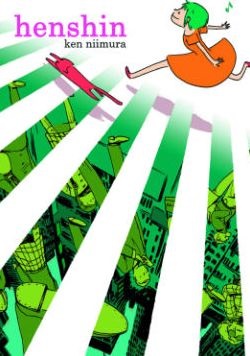 Henshin by Ken Niimura (Image Comics, $19.99, 9781632152428)
Henshin by Ken Niimura (Image Comics, $19.99, 9781632152428)
Featuring drunk salarymen, superheroes in hiding, expatriates, cats whose existence can be proven only by the poop they leave behind, gangsters and the author himself, Niimura's story collection ranges from the hilarious to the poignant to the absurd.
Most of the tales are clearly fictional (like the superhero family who are trying to hide their existence and really don't want to have to move again), but some are semi-autobiographical stories in which Niimura stars. They are mostly about his love of cats, and the odd ways in which a cat shows its love of him, but they are also about the writing process, and how it is both difficult and rewarding in equal measures.
My favorite story is the heartbreaking tale of two old men who have known each other since high school, one of whom is dying. It is told in just 27 pages, but the bond between them is never in doubt.
Handselling Opportunities: People who enjoys stories by a single author that run the gamut of genres and styles, and people who love cats.
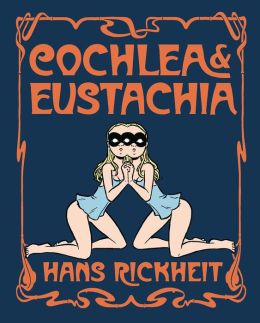 Cochlea & Eustachia by Hans Rickheit (Fantagraphics, $19.99, 9781606998014)
Cochlea & Eustachia by Hans Rickheit (Fantagraphics, $19.99, 9781606998014)
This is a weird book. The setting and characters are indeterminately inhuman. Even the plot is indeterminate, at least for the first few readings.
Cochlea and Eustachia are two humanoid twin girls infesting the home of a mole-looking creature, who also happens to be a scientist. There's also a third girl running around who looks exactly like the twins, but they've never seen her before. She's causing mayhem wherever she goes, antagonizing the mole scientist. Since they all look alike, the mole scientist goes after whichever girl he sees first, who just happens to be the innocent Cochlea. What follows is death and destruction on a grand scale.
There are worlds within worlds in this book: inside the odd machinery and stuffed animals arrayed around the house and inside the girls themselves. Nothing is what it seems, and yet everything is drawn in a crisp, clean style that makes one think that all is normal, no matter how strange it looks.
Handselling Opportunities: Fans of Thomas Pynchon and William Burroughs, and any other books that don't seem to make a lot of sense the first time you read them.
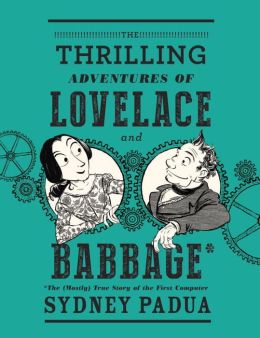 The Thrilling Adventures of Lovelace and Babbage: The (Mostly) True Story of the First Computer by Sydney Padua (Pantheon, $28.95, 9780307908278)
The Thrilling Adventures of Lovelace and Babbage: The (Mostly) True Story of the First Computer by Sydney Padua (Pantheon, $28.95, 9780307908278)
Ada, Countess of Lovelace, daughter of Romantic poet Lord Byron, and polymath Charles Babbage theorized building the first computer in Victorian England. Alas, they never got past writing a paper and building a small model in real life. However, that didn't stop Sydney Padua from creating a pocket universe in which they succeed in building the Analytical Engine and then use it to fight crime, those "crimes" being economic collapses and syntax errors.
Padua's Lovelace and Babbage are hilarious and lovable. They are based on the real people, as evidenced by Padua's copious footnotes and endnotes, which are often as hilarious as the comics themselves. Her art of the engine's insides and outsides are likewise (mostly) based on Babbage's original notes and sketches, and look exactly how you might think a Victorian-era steam-powered computer would look.
If mathematics can have imaginary numbers that are incredibly important for certain types of equations, then literature can definitely have imaginary histories that are incredibly important to our understanding of the world.
Handselling Opportunities: Lovers of higher mathematics, steampunk and humor.











 Mary Smolinski and Susan Tyler, owners of the
Mary Smolinski and Susan Tyler, owners of the 


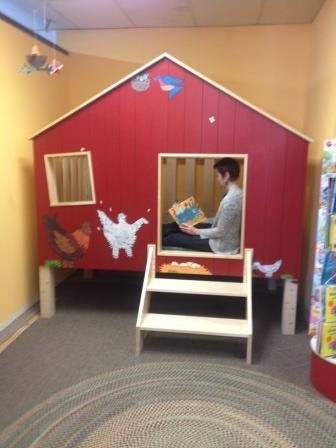



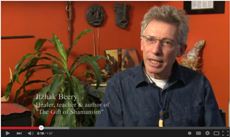 The Gift of Shamanism: Visionary Power, Ayahuasca Dreams, and Journeys to Other Realms
The Gift of Shamanism: Visionary Power, Ayahuasca Dreams, and Journeys to Other Realms
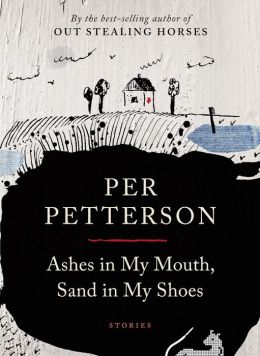 American fans of Norwegian author Per Petterson's novels, like Out Stealing Horses and To Siberia, will be delighted that Graywolf Press has decided to publish the collection Ashes in My Mouth, Sand in My Shoes: Stories, the book that marked Petterson's literary debut in 1987. These spare, outwardly simple stories offer an early glimpse of the psychological acuity that's distinguished his entire body of work.
American fans of Norwegian author Per Petterson's novels, like Out Stealing Horses and To Siberia, will be delighted that Graywolf Press has decided to publish the collection Ashes in My Mouth, Sand in My Shoes: Stories, the book that marked Petterson's literary debut in 1987. These spare, outwardly simple stories offer an early glimpse of the psychological acuity that's distinguished his entire body of work.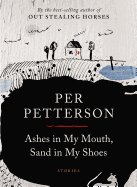
 Zen Pencils: Cartoon Quotes from Inspirational Folks by Gavin Aung Than (Andrews McMeel, $14.99, 9781449457952)
Zen Pencils: Cartoon Quotes from Inspirational Folks by Gavin Aung Than (Andrews McMeel, $14.99, 9781449457952) Henshin by Ken Niimura (Image Comics, $19.99, 9781632152428)
Henshin by Ken Niimura (Image Comics, $19.99, 9781632152428) Cochlea & Eustachia by Hans Rickheit (Fantagraphics, $19.99, 9781606998014)
Cochlea & Eustachia by Hans Rickheit (Fantagraphics, $19.99, 9781606998014) The Thrilling Adventures of Lovelace and Babbage: The (Mostly) True Story of the First Computer by Sydney Padua (Pantheon, $28.95, 9780307908278)
The Thrilling Adventures of Lovelace and Babbage: The (Mostly) True Story of the First Computer by Sydney Padua (Pantheon, $28.95, 9780307908278)